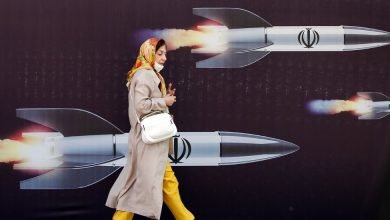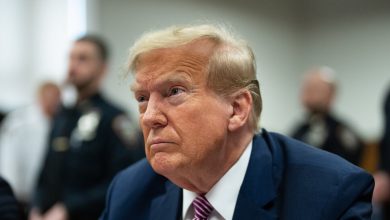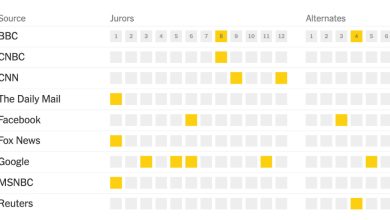Beirut, a City Where Everyone Gets By, Revisits Sectarian Violence

BEIRUT, Lebanon — Tony Nohra, a shopkeeper in a Christian neighborhood of Beirut, was receiving a shipment of yogurt on Friday, the day after sectarian clashes killed seven people in the city,and talking about how many Shiite Muslim friends he had.
But when asked how the violence had begun, he snapped. “You have to ask the guys there,” he said, angrily pointing toward the Shiite neighborhood nearby.
Overhearing the comment, the Shiite man delivering the yogurt cut in.
“No, no,” he insisted. “It started from here.”
Most of the time, residents of Beirut, a scrappy Mediterranean city whose roughly 2.5 million inhabitants represent tremendous ethnic and religious diversity, get by and get along. They do business, socialize and even marry outside of their religious groups.
Various denominations of Christians, Sunni and Shiite Muslims, Druze, Armenians, Syrian and Palestinian refugees and other groups crowd together, often sharing employers, neighborhoods and apartment buildings.
But the clashes on Thursday, the worst sectarian violence in Lebanon’s capital in years, revealed tensions lurking just beneath the surface in a city haunted by 15 years of civil war.
Apartment buildings still bear scars from gunfights during the civil war, during which sectarian militias of Muslims, Christians and others battled off and on until 1990. And although it has long been erased, nearly everyone knows the path of the “green line” that divided the city between the Christian East and Muslim West during the hostilities.
It was near that invisible border that fighting erupted on Thursday, when snipers in tall buildings fired on Shiites passing by the neighborhood on their way to a protest. By Saturday, the authorities had arrested 19 people for involvement in the clashes, the state-run National News Agency reported, without providing further details on the suspects.
The violence played out against the backdrop of devastating political and economic crises that have left many residents feeling there is not much of a state left to protect them, a situation that has only increased feelings of loyalty to and dependence on their sects.
Since the autumn of 2019, the currency has collapsed, siphoning value from people’s salaries and savings and causing prices to skyrocket. Amid perpetual bickering, the political elite has failed to slow the descent.
And a huge explosion in the port of Beirut last year killed more than 215 people, damaged large swaths of the city and left many Beirutis feeling that their government’s history of poor management and corruption was endangering their lives.
It was the repercussions from the explosion — namely efforts by politicians and other officials to exempt themselves from responsibility for it — that led to the events on Thursday.
Two Shiite political parties — Hezbollah, a militant group that the United States considers a terrorist organization, and the Amal Movement — led a protest calling for the removal of the judge leading the investigation into the explosion.
On their way to the protest, many participants walked down a commercial boulevard that separates two very different neighborhoods.
On one side is Mr. Nohra’s predominantly Christian neighborhood, Ein al-Remaneh, where many residents wear crosses, pepper their Arabic with French and name their children after Catholic saints.
On the other is the mostly Shiite Muslim Chiyah, where flags bearing the names of Shiite Muslim martyrs hang from lampposts, women wear head scarves and residents see Iran as more likely to help Lebanon solve its many problems than is the United States.
Residents of the two neighborhoods frequently go back and forth. Christians shop for deals in the Shiite area, where traders have a knack for avoiding paying customs duties. And less devout Shiites buy beer from the Christians, sometimes drinking it on site if they can’t take it home.
Like many in Beirut, the residents often view local conflicts as skirmishes in broad geopolitical battles involving the United States, Israel, Saudi Arabia and Iran. They offered drastically different explanations for what had set off the violence.
In Ein al-Remaneh, Christians accused the protesters of entering their neighborhood with arms, a provocation.
“Who comes to a peaceful protest with weapons?” asked Fadi Qarout, 57, a Christian merchant who has lived in the area since before the civil war.
He acknowledged that snipers from a Chrisitan militia could have deployed before the protest, but accused the Shiites of showing force in a community that was not theirs.
“They entered the area to cause problems here,” he said.
Mr. Nohra agreed.
“Who got hurt more?” he said, mentioning the nearby chandelier shop and car dealership that had been damaged in the gunfight.
When reminded that all seven people who had been killed were Shiites, including a woman who had been tending to laundry on her balcony, he resorted to an all-too-common Lebanese explanation for facts that don’t mesh with the preferred narrative: the conspiracy theory.
The Shiites, he said, shot at themselves “to inflame the situation.”
Hezbollah and its allies accused snipers from the Lebanese Forces, a Christian political party that is supported by Saudi Arabia, of firing at their members, forcing them to respond. The Lebanese Forces denied involvement in the attack, and their leader, Samir Geagea, blamed Hezbollah.
A short distance from Mr. Nohra’s shop, across the boulevard in Chiyah, a group of Shiite men, dressed in black to mourn those killed, spun conspiracy theories of their own, saying the snipers were part of a plot involving the United States and its allies to weaken Hezbollah and its allies.
None of the men agreed to give their names.
“Yes, there was an ambush and the embassies and intelligence agencies planned it,” said a man known as Abu Ali, whom residents described as being in charge of the area and who declined to give his real name.
He wore a military-style shirt, sported a pistol on his belt and ran a coffee shop called Al Sultan that was covered with pictures of Marlon Brando in “The Godfather.”
The snipers, he was sure, had been trained by the United States, he said.
Hezbollah would seek revenge when it chose to, he said, adding, “When there is silence, it is because we are planning our response.”
As he spoke, men in black shirts left the cafe, grabbed automatic rifles and sped off on motor scooters toward the funerals for their comrades killed the day before.
Near the cemetery, thousands of members and supporters of Hezbollah filled the streets, blasting their Kalashnikovs into the sky, covering the asphalt with bullet casings and filling the air with smoke.
It was an armed gathering larger than any other group in Lebanon can summon, reflecting the strength that exempts Hezbollah from any control by the Lebanese state.
“The Shiites in Lebanon are weak without Hezbollah, but Hezbollah has no choice but to be strong since they are surrounded by enemies,” said Abbas al-Moualem, a nurse who attended the funerals.
Iman Fadlallah, 45, who was mourning a relative who had been killed the day before, acknowledged that Lebanon’s meltdown had hurt her family. They lacked electricity, and prices had risen so fast they could rarely afford meat.
But she remained religiously and politically committed to Hezbollah.
“Our commitment to the party is bigger,” she said. “If I don’t eat meat, it’s fine.”
Asmaa al-Omar contributed reporting.




